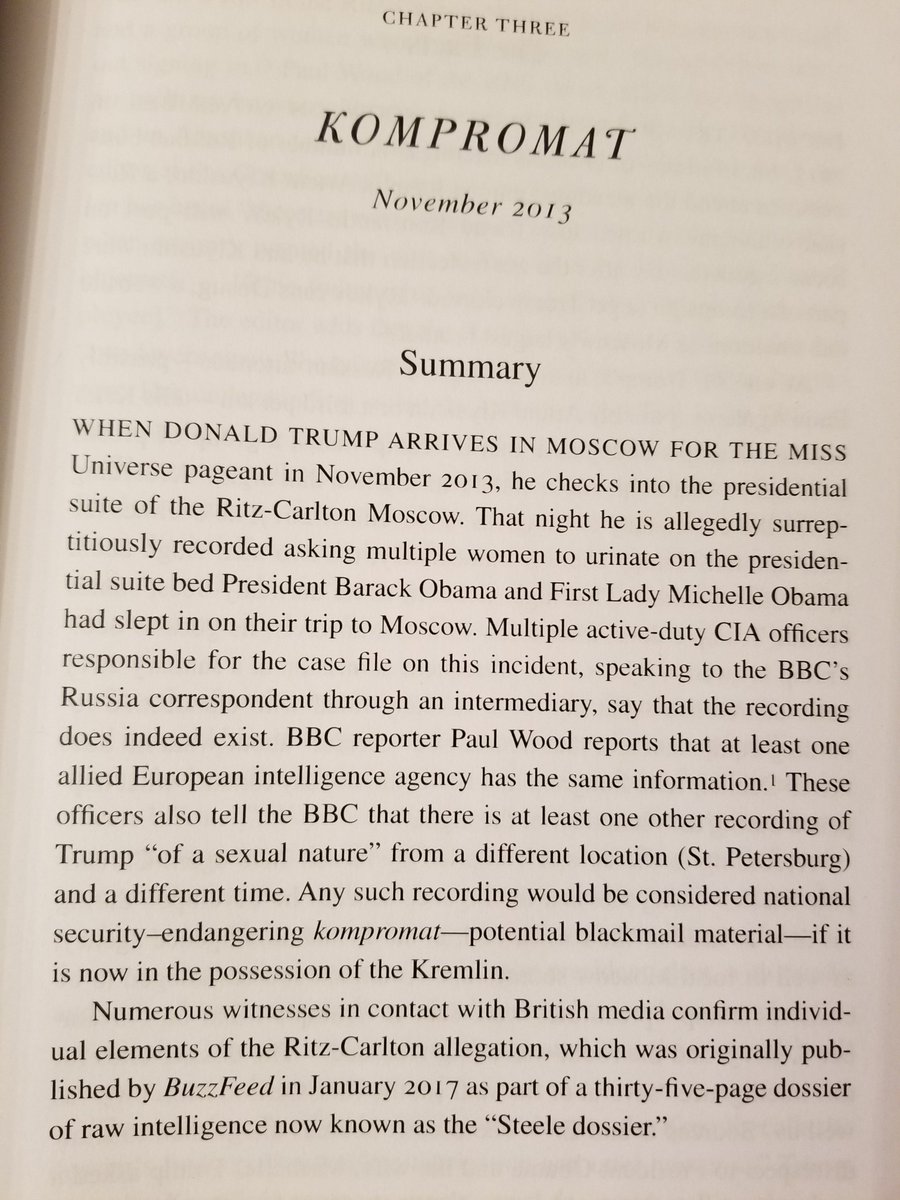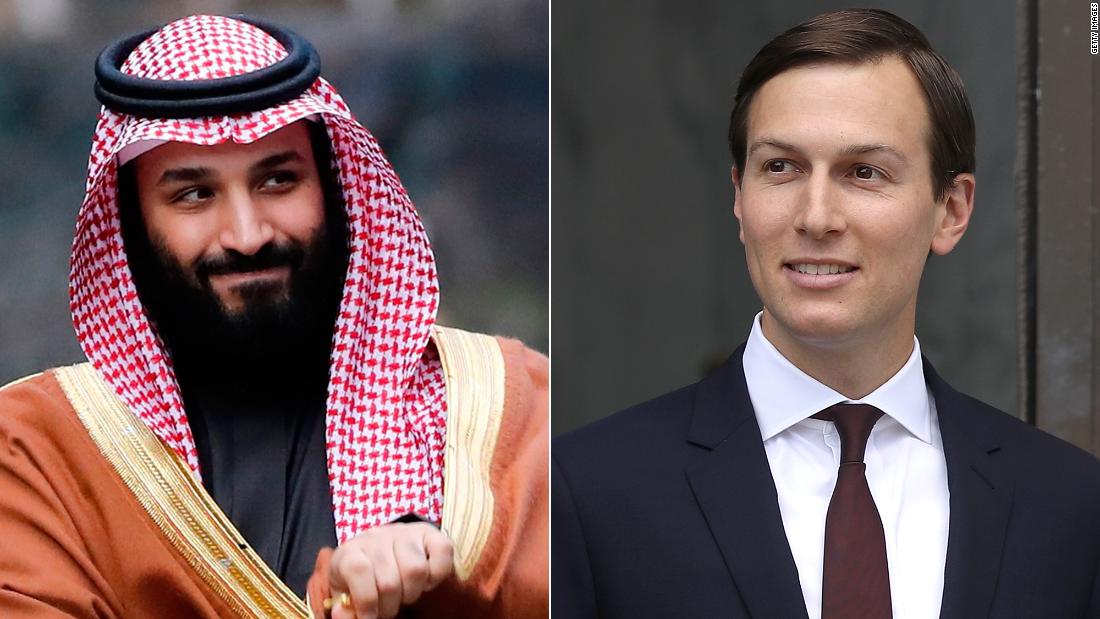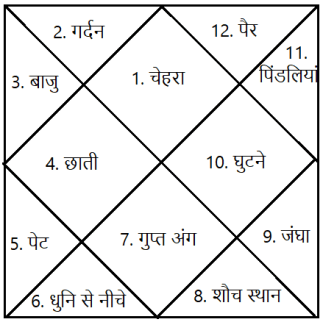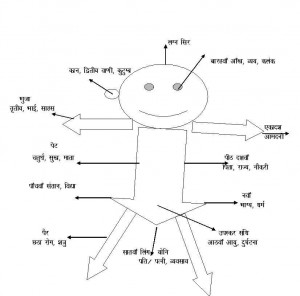The Pardon Clause prohibits using the pardon power to obstruct impeachments. Trump repeatedly opined—rightly—that Mueller's probe could lead to a referral for possible impeachment (which it did). The pardons he just gave are the ones he dangled to obstruct Mueller. See the issue?
More from Seth Abramson
(EXCERPT) PROOF OF COLLUSION drops in 3 weeks. Here's the second set of excerpts from this 450-page, 1,650-endnote book. 4 more excerpts will be released each Monday until the book's November 13 release. I hope you'll RETWEET and consider preordering here: https://t.co/z0ep5wUW9h

2/ For those who missed the first set of excerpts from PROOF OF COLLUSION, they can be seen in the tweet below—click on the link to see the tweet. For the link to preorder PROOF OF COLLUSION, see my currently pinned tweet or the link in my Twitter profile.
PS/ To see a larger, more readily readable version of any of these excerpts, right-click and download the picture to your desktop. Then open the file and it will be much larger and easier to read.
BONUS FACT/ In the last excerpt, I refer to "any aide with whom Trump shared the classified intelligence he received in the [August 17, 2016] briefing." Well you might wonder—who did he share it with? Answer: we don't know.
But we DO know who was WITH HIM at the briefing: FLYNN.
BONUS FACT 2/ According to Mother Jones and Washington Post reporting, then, we know Flynn attended the August 17, 2016 briefing at which Trump was informed of Russian aggression, and THEREAFTER—but BEFORE the election—engaged in clandestine contacts with the Russian ambassador.

2/ For those who missed the first set of excerpts from PROOF OF COLLUSION, they can be seen in the tweet below—click on the link to see the tweet. For the link to preorder PROOF OF COLLUSION, see my currently pinned tweet or the link in my Twitter profile.
(EXCERPT) Here are the first excerpts to be published from my forthcoming 450-page, 1,650-endnote book PROOF OF COLLUSION. More excerpts will be released each Monday until the book's November 13 release. I hope you'll RETWEET and consider preordering here: https://t.co/ZJsnHcVwGi pic.twitter.com/LDu7deiPJU
— Seth Abramson (@SethAbramson) October 15, 2018
PS/ To see a larger, more readily readable version of any of these excerpts, right-click and download the picture to your desktop. Then open the file and it will be much larger and easier to read.
BONUS FACT/ In the last excerpt, I refer to "any aide with whom Trump shared the classified intelligence he received in the [August 17, 2016] briefing." Well you might wonder—who did he share it with? Answer: we don't know.
But we DO know who was WITH HIM at the briefing: FLYNN.
BONUS FACT 2/ According to Mother Jones and Washington Post reporting, then, we know Flynn attended the August 17, 2016 briefing at which Trump was informed of Russian aggression, and THEREAFTER—but BEFORE the election—engaged in clandestine contacts with the Russian ambassador.
More from Trump
You May Also Like
Trading view scanner process -
1 - open trading view in your browser and select stock scanner in left corner down side .
2 - touch the percentage% gain change ( and u can see higest gainer of today)
3. Then, start with 6% gainer to 20% gainer and look charts of everyone in daily Timeframe . (For fno selection u can choose 1% to 4% )
4. Then manually select the stocks which are going to give all time high BO or 52 high BO or already given.
5. U can also select those stocks which are going to give range breakout or already given range BO
6 . If in 15 min chart📊 any stock sustaing near BO zone or after BO then select it on your watchlist
7 . Now next day if any stock show momentum u can take trade in it with RM
This looks very easy & simple but,
U will amazed to see it's result if you follow proper risk management.
I did 4x my capital by trading in only momentum stocks.
I will keep sharing such learning thread 🧵 for you 🙏💞🙏
Keep learning / keep sharing 🙏
@AdityaTodmal
1 - open trading view in your browser and select stock scanner in left corner down side .
2 - touch the percentage% gain change ( and u can see higest gainer of today)
Making thread \U0001f9f5 on trading view scanner by which you can select intraday and btst stocks .
— Vikrant (@Trading0secrets) October 22, 2021
In just few hours (Without any watchlist)
Some manual efforts u have to put on it.
Soon going to share the process with u whenever it will be ready .
"How's the josh?"guys \U0001f57a\U0001f3b7\U0001f483
3. Then, start with 6% gainer to 20% gainer and look charts of everyone in daily Timeframe . (For fno selection u can choose 1% to 4% )
4. Then manually select the stocks which are going to give all time high BO or 52 high BO or already given.
5. U can also select those stocks which are going to give range breakout or already given range BO
6 . If in 15 min chart📊 any stock sustaing near BO zone or after BO then select it on your watchlist
7 . Now next day if any stock show momentum u can take trade in it with RM
This looks very easy & simple but,
U will amazed to see it's result if you follow proper risk management.
I did 4x my capital by trading in only momentum stocks.
I will keep sharing such learning thread 🧵 for you 🙏💞🙏
Keep learning / keep sharing 🙏
@AdityaTodmal
































